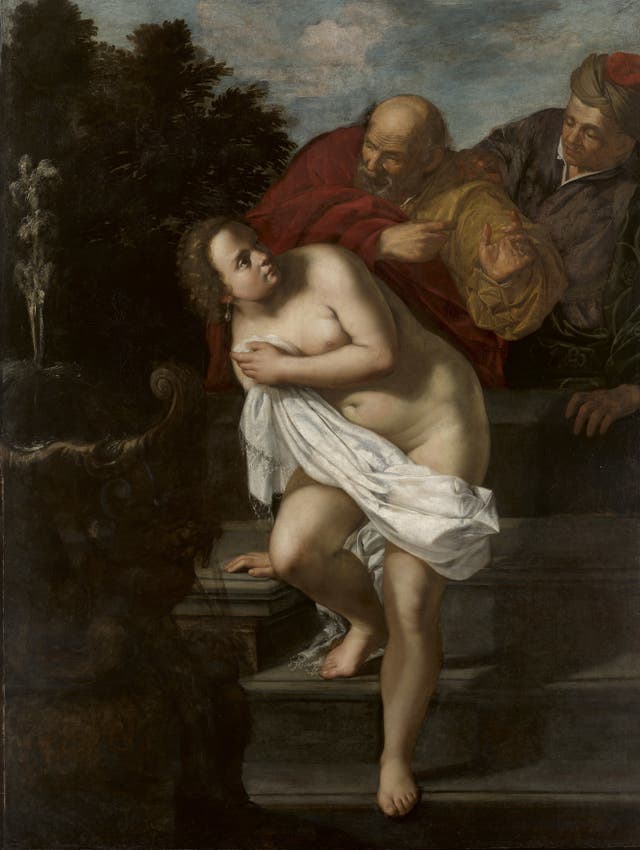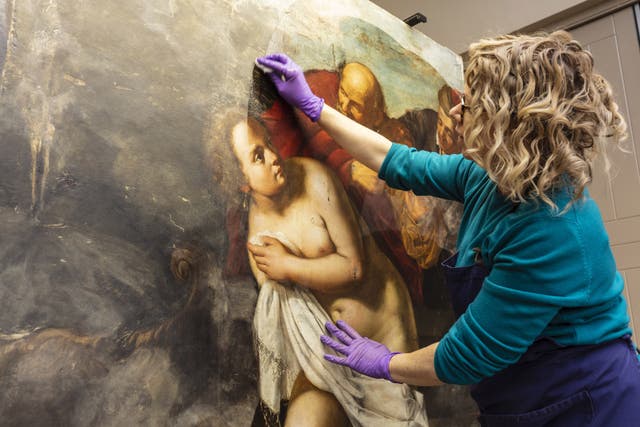The artwork, titled Susanna And The Elders, is thought to have been commissioned by the wife of Charles I, Henrietta Maria of France, as she prepared for childbirth.
For more than 100 years it had been kept in storage at Hampton Court Palace after being mis-attributed to an anonymous French artist.

Following extensive conservation work, the painting has gone on display as part of a new temporary exhibition in the Queen’s Drawing Room in Windsor Castle.
Shown alongside it are Self-Portrait As The Allegory Of Painting, also known as La Pittura, and Joseph And Potiphar’s Wife by her father Orazio Gentileschi – painted during his time in London.
The painting was rediscovered while curators of the Royal Collection Trust were tracing paintings sold off and scattered across Europe after Charles I’s execution.
Seven paintings by Gentileschi were recorded in Charles I’s inventories, but only the Self-Portrait was thought to have survived – with the others thought lost.
Through research, curators were able to match the description of Susanna And The Elders to the painting at Hampton Court Palace.
The branding of ‘CR’, to stand for Carolus Rex, was later found of the back of the canvas when it was undergoing conservation treatment, confirming that the painting was once in Charles I’s collection.

Royal Collection Trust former staff member and art historian Niko Munz said: “One of the most exciting parts of this painting’s story is that it appears to have been commissioned by Queen Henrietta Maria while her apartments were being redecorated for a royal birth.
“Susanna first hung above a new fireplace – probably installed at the same time as the painting – emblazoned with Henrietta Maria’s personal cipher ‘HMR’ (‘Henrietta Maria Regina’). It was very much the Queen’s painting.”
Gentileschi gained fame across Europe in the 17th century at a time when few women artists were formally recognised.
She trained with her father in Rome and later worked in Florence, Naples, Venice and London for aristocratic and royal patrons.
Her work fell out of favour in the 18th and 19th centuries, but in the last 50 years she has become known for her “powerful and empathetic depictions of women from history”, the Royal Collection Trust has said.
Anna Reynolds, the deputy surveyor of The King’s Pictures, said: “We are so excited to announce the rediscovery of this important work by Artemisia Gentileschi.
“Artemisia was a strong, dynamic and exceptionally talented artist whose female subjects – including Susanna – look at you from their canvases with the same determination to make their voices heard that Artemisia showed in the male-dominated art world of the 17th century.”
The special display of works by Artemisia and Orazio Gentileschi will be on display at Windsor Castle until April 29 2024.



